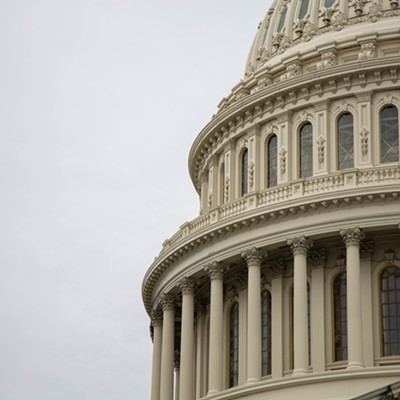Oregon Needs Sunshine
Oregon is in the news for another failing score, but this time, it's not our educational system—it's the whole state government.
According to a recent data-driven assessment by the Center for Public Integrity and Global Integrity, Oregon earns an F for government accountability and transparency. And while the top-ranked state, Alaska, only got a C, it still leaves Oregon tied for 44th place—hardly worth bragging about.
The recent gubernatorial scandal played a large role in the overall score—Oregon earned a predictable F for executive accountability—but the problems extend beyond former Gov. John Kitzhaber's office.
And a political scandal doesn't have to be a death sentence for these types of ratings. In fact, many of the higher ranked states have a history of political corruption. The key difference is that they used those scandals to propel meaningful changes. In Oregon, however, the accountability measures passed by Gov. Kate Brown fell short of the Center's benchmark and should be a concern for Oregonians.
One of the biggest factors impacting the rankings was public records policies and practices. Oregon earned another F in the subcategory of public access to information, a shameful fact considering that Oregon enacted "sunshine" legislation in 1973, three years before the federal Government's Sunshine Act passed in 1976.
In response to the report, Gov. Brown's office released a statement detailing her efforts to improve government transparency and implement ethics reform, including releasing more than 100,000 documents in response to media and other public requests. The release also notes that Attorney General Ellen Rosenblum convenes a task force dedicated to looking into the State's public records law, in particular its more than 400 exemptions.
The statement goes on to quote Gov. Brown's July guest editorial in the Oregonian, in which she wrote: "Upon taking office, I appointed Oregon's first-ever policy advisor dedicated to ethics, and in June, I signed into law three bills passed with strong bipartisan support that strengthen our ability to hold wrongdoers accountable. The bills lay important groundwork for continued improvements to Oregon's ethics laws and our complex and sometimes confounding public records laws."
While her efforts to address some of the more egregious problems are praiseworthy, there is clearly more work to be done. And, it's worth noting that, while the Governor sets the tone and lawmakers craft the laws, it's within the power of each individual legislator to conduct their affairs in an open, transparent, and accountable manner. And when the law does not support such conduct, they ought to feel compelled to change it.
We're holding onto some optimism that Gov. Brown can, and will, turn the ethics ship around. A glimmer of hope comes in the form of Brown's recent letter to the Oregon Department of Fish and Wildlife, asking the agency to withdraw an application to trade part of its water rights to facilitate a deal with Nestle. Instead, she is asking for a participatory approach that weighs how giving up state water rights in the midst of a drought might impact the public.
Brown's spokeswoman Kristen Grainger explained: "She thinks it's really important that proposals that affect a publicly held water right be subject to the review process that offers the greatest opportunity for public involvement."
Now, if Brown can apply that principle of transparency and accountability to all the government's dealings, we'll be on the right path.


























